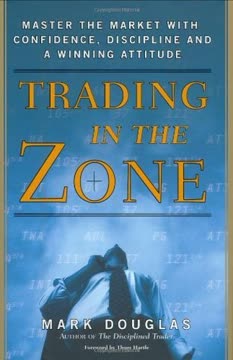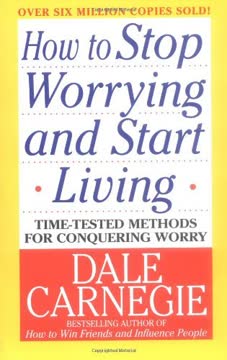つの重要なポイント
1. シンプルさと集中: 簡単な投資を選ぶ
簡単で明白なことをしなさい、とバフェットは助言します。複雑な質問に対して複雑な答えを見つけようとしないでください。
シンプルさを受け入れる。 ウォーレン・バフェットの投資哲学は、成功する投資には複雑な数式や高度な学位は必要ないという信念に基づいています。代わりに、常識的な原則と忍耐力に依存しています。バフェットは、理解しやすく、持続的な見通しを持ち、有能な経営陣がいる堅実なビジネスに投資することを推奨しています。
複雑さを避ける。 バフェットは、洗練された株式選択プログラム、複雑な数式、または最先端の投資理論に巻き込まれないよう警告しています。これらはしばしば投資家に不必要な混乱を引き起こし、悪い意思決定につながると彼は信じています。代わりに以下に集中してください:
- 誠実で有能な人々が運営する優れた企業の株を購入する
- そのビジネスの実際の価値よりも安く株を購入する
- その株を保持し、市場があなたの評価を確認するのを待つ
これらのシンプルな原則に従うことで、バフェットは比較的小さな投資を数十億ドルの保有に変え、並外れた結果を得るために並外れた行動は必要ないことを示しています。
2. 独立した思考: 市場のノイズを無視し、自分で決定する
自分で考えなさい。
自分で考える。 バフェットは、平均的な人がブローカーや株式市場の専門家に頼らずに成功する投資ができると強く信じています。彼は、これらのいわゆる専門家はしばしば何も提供せず、彼らの報酬構造のために利益相反があるかもしれないと主張しています。
自分の視点を育てる。 バフェットのように投資するためには:
- 会計と金融市場の基本知識を身につける
- 金融アドバイザーや「話す頭」に対して健全な懐疑心を持つ
- バフェット自身よりも優れた投資記録を持つ人はいないことを覚えておく
バフェットのアイデアと実践を理解し適用することで、他人のサービスを必要とせずに独立して健全な投資判断を下すための行動規範を開発することができます。
3. 気質: 市場の変動中に冷静さを保つ
保有株が一晩で価値の半分を失ったときに取り乱すような人は、そもそも株式市場にいるべきではありません。
感情の安定を育てる。 バフェットは、成功する投資には正しい気質が重要であると強調しています。これは、市場の高低の両方で冷静さを保ち、感情に基づいて投資判断を下さないことを意味します。
乱気流の中で理性的でいる。 適切な気質を育てるためには:
- 株価が下落したときにパニック売りをしないでください。代わりに、それを購入の機会と見なしてください
- 所有するビジネスの長期的な基本に焦点を当て、短期的な価格変動に惑わされないでください
- 市場の感情や「専門家」の予測に基づいて急いで決定を下さないでください
- 自分自身とリスク許容度を知り、変動を耐えられない株には投資しないでください
バフェットは、市場の低迷を優れた企業を割引価格で購入する機会と見なしています。冷静で理性的なアプローチを維持することで、市場の変動を脅威ではなく、投資の利点に変えることができます。
4. 忍耐: 短期的な利益ではなく長期的な投資を目指す
10分ではなく10年を考えなさい、とバフェットは助言します。特定の株を10年間保有する準備ができていないなら、最初からそれを買わないでください。
長期的な視点を採用する。 バフェットの投資哲学は、忍耐と長期的な展望に基づいています。彼はデイトレーダーではなく「数十年のトレーダー」であり、しばしば株を何年も、時には何十年も保有します。このアプローチにより、時間をかけて優れたビジネスの複利成長の恩恵を受けることができます。
規律ある忍耐を実践する。 バフェットのように投資するためには:
- 少なくとも5〜10年間保有するつもりで株を購入する
- 日々の株価の動きではなく、ビジネスのパフォーマンスに焦点を当てる
- 頻繁な取引の誘惑に抵抗し、それが高コストと低リターンにつながる可能性があることを認識する
- 優れた企業を公正な価格で購入するための適切な機会を待つ意志を持つ
バフェットの忍耐力は、比較的小さな投資を数十億ドルの保有に変えることを可能にしました。この長期的な考え方を採用することで、短期的な思考の落とし穴を避け、時間をかけて大きな報酬を得る可能性があります。
5. ビジネス中心のアプローチ: 株ではなく優れた企業を購入する
株はビジネスの一部であることを忘れないでください。株価の動きで株を買うのではなく、ビジネスとその将来の見通しの分析に基づいて株を買いなさい。
基礎となるビジネスに焦点を当てる。 バフェットは、株を購入する際には実際のビジネスの一部を購入していることを強調しています。したがって、投資判断は株価の動きや市場のトレンドではなく、ビジネスの質と見通しに基づいて行うべきです。
ビジネスを分析する。 このアプローチを実践するためには:
- 会社の基本を研究する:利益、収益、キャッシュフロー、バランスシート、損益計算書
- 会社の競争優位性と長期的な成長可能性を評価する
- 経営陣の質と誠実さを評価する
- 予測可能で持続可能な収益力を持つビジネスを探す
- 投資前に企業を徹底的に調査するためにオンラインリソースを活用する
株の背後にあるビジネスに焦点を当てることで、より情報に基づいた投資判断を下し、長期的に株主価値を創造する優れた企業を見つける可能性が高まります。
6. 集中投資: 少数の高品質なビジネスに多額を投資する
5〜10の優れた企業を割安な価格で購入し、それぞれにできるだけ多くのポジションを取る。
最高のアイデアに集中する。 幅広い分散投資を推奨する従来の知恵に反して、バフェットは少数の高品質なビジネスに投資を集中させることを推奨しています。彼は、正しい株を見つけた場合、それに多額を投資するべきだと信じています。
集中ポートフォリオを構築する。 この戦略を実践するためには:
- ポートフォリオに10株以上を持たないようにする
- 高い確信がある場合には各ポジションに多額を投資する
- 各投資がバフェットの優れたビジネスと強力な経営陣の基準を満たしていることを確認する
- 適切な投資機会を待つ忍耐力を持つ
- 優れた投資機会を見つけたときには決断力を持って行動する
バフェットの集中アプローチは、時間をかけて優れたリターンを生み出すことを可能にしました。最高のアイデアに集中し、それに多額を投資することで、より分散されたが平凡なポートフォリオを上回る可能性があります。
7. 非活動: 常に売買する誘惑に抵抗する
無気力?非活動?眠りながら富を築く?何が起こっているのですか?投資は高速道路の生活ではないのですか?
非活動を受け入れる。 バフェットは、過剰な取引が富にとって有害であると信じています。彼は、優れたビジネスの株を購入し、長期間保持する買い持ち戦略を推奨しており、短期的な市場の動きに基づいて常に売買する誘惑に抵抗することを勧めています。
知的な非活動を実践する。 このアプローチを実践するためには:
- 頻繁な取引を避け、取引コストや税負担を最小限に抑える
- 短期的な価格変動ではなく、ビジネスの長期的なパフォーマンスに焦点を当てる
- 本当に優れた投資機会を待つ忍耐力を持つ
- ポートフォリオで常に「何かをする」必要があると感じないでください
- 非活動が投資の天才の兆候であることを覚えておく
バフェットは、多くの投資を数十年間保持することで、このアプローチの力を示しています。頻繁に取引する誘惑に抵抗し、優れたビジネスを長期間所有することに焦点を当てることで、より良い投資結果を達成し、コストを最小限に抑えることができます。
8. 価値投資: 強固な基盤を持つ割安な企業を探す
価値投資は、株式市場における価格と価値の不一致に基づいて行動することを主に指します。つまり、40セントで売られている1ドル札を探すことです。
割安な機会を探す。 バフェットの投資哲学は、彼のメンターであるベンジャミン・グレアムによって提唱された価値投資に根ざしています。このアプローチは、株価が内在価値よりも大幅に低い企業を特定し、実質的なリターンを得る機会を創出することを目的としています。
価値投資の原則を実践する。 バフェットのように投資するためには:
- 短期的な市場のトレンドではなく、企業の基本に焦点を当てる
- 強力な競争優位性と一貫した収益を持つビジネスを探す
- 財務諸表を分析して企業の真の価値を評価する
- 市場が質の高いビジネスに魅力的な価格を提供するのを待つ忍耐力を持つ
- 市場の誇大広告や人気の意見に惑わされず、自分の分析を信じる
価値投資には規律と群衆に逆らう意志が必要です。強固な基盤を持つ割安な企業を見つけることに焦点を当てることで、バフェットがキャリアを通じて達成してきたように、長期的に優れたリターンを得る可能性があります。
9. 安全マージン: 内在価値に対して割引価格で株を購入する
簡単に言えば、「安全マージン」とは、株価がビジネスの価値よりも大幅に低いことを意味します。
安全を優先する。 バフェットは、投資において重要な安全マージンを持つことの重要性を強調しています。この概念は、ベンジャミン・グレアムからも派生しており、内在価値よりも大幅に低い価格で株を購入することで、評価の誤りや予期せぬ悪い出来事に対するバッファーを提供します。
安全マージンの原則を実践する。 この概念を適用するためには:
- 株価とビジネスの内在価値の間に大幅な割引を常に求める
- 市場の悲観論が魅力的な価格を提供する機会を待つ忍耐力を持つ
- 質を妥協せず、割引価格で優れたビジネスを探す
- 大きな安全マージンがリスクを減らし、潜在的なリターンを増加させることを覚えておく
- そのような機会が現れたときには決断力を持って行動する
安全マージンの原則を一貫して適用することで、投資リスクを減らし、市場がビジネスの真の価値を認識する際に大きな利益を得る可能性を高めることができます。
10. 継続的な学習: 広範に読書し、批判的に考える
広範な読書は、バフェットに独立した思考と推論を支える事実とアイデアを提供します。
知識を育てる。 バフェットは、自身の成功の多くを貪欲な読書習慣と、消費する情報について批判的に考える能力に帰しています。彼は毎日の大部分を金融出版物、年次報告書、投資やビジネスに関する本を読むことに費やしています。
学習習慣を身につける。 バフェットのアプローチを模倣するためには:
- 高品質な金融およびビジネス情報源に焦点を当てて広範に読む
- 興味のある企業の年次報告書や財務諸表を研究する
- 特にベンジャミン・グレアムやフィリップ・フィッシャーの本を読む
- 市場予測、株式のヒント、複雑な理論モデルに時間を浪費しない
- 読んだことについて批判的に考え、それが投資にどのように適用されるかを考える時間を取る
知識を継続的に拡大し、批判的思考スキルを磨くことで、成功する長期投資に必要な知的枠組みを開発することができます。バフェットの見解では、投資業界は知識が蓄積され、それを見つける努力を惜しまない人々に報いる分野です。
最終更新日:
FAQ
What's "How Buffett Does It" about?
- Overview of the book: "How Buffett Does It" by James Pardoe outlines 24 simple investing strategies inspired by Warren Buffett, the world's greatest value investor.
- Focus on simplicity: The book emphasizes the importance of simplicity in investing, advocating for straightforward strategies over complex ones.
- Value investing principles: It delves into the core principles of value investing, a method that Buffett has mastered over decades.
- Practical advice: The book provides actionable advice for investors looking to emulate Buffett's success in the stock market.
Why should I read "How Buffett Does It"?
- Learn from the best: The book distills the wisdom of Warren Buffett, offering insights from one of the most successful investors in history.
- Actionable strategies: It provides practical, easy-to-follow strategies that can be applied by both novice and experienced investors.
- Avoid common pitfalls: By understanding Buffett's approach, readers can avoid common investing mistakes and improve their financial decision-making.
- Long-term success: The book emphasizes patience and discipline, key traits for achieving long-term investment success.
What are the key takeaways of "How Buffett Does It"?
- Simplicity over complexity: Buffett advises keeping investment strategies simple and avoiding unnecessary complexity.
- Independent thinking: Investors should make their own decisions and not be swayed by market trends or popular opinion.
- Focus on value: The book stresses the importance of buying undervalued stocks and holding them for the long term.
- Proper temperament: Maintaining a calm and patient demeanor is crucial, especially during market fluctuations.
What is Warren Buffett's investment philosophy as described in the book?
- Value investing: Buffett focuses on buying undervalued stocks of companies with strong fundamentals and holding them long-term.
- Business analysis: He emphasizes understanding the business behind the stock, rather than just the stock price.
- Margin of safety: Buffett looks for a significant gap between a stock's price and its intrinsic value to minimize risk.
- Patience and discipline: He advocates for a patient approach, waiting for the right opportunities and avoiding impulsive decisions.
How does "How Buffett Does It" suggest handling market downturns?
- Buying opportunities: Market downturns are seen as opportunities to buy quality stocks at discounted prices.
- Ignore short-term noise: Investors should focus on the long-term value of their investments rather than short-term market fluctuations.
- Stay calm: Maintaining composure during market volatility is crucial to making rational investment decisions.
- Mr. Market concept: The book uses Ben Graham's "Mr. Market" allegory to illustrate how investors can benefit from market irrationality.
What does "How Buffett Does It" say about diversification?
- Concentration over diversification: Buffett prefers concentrating investments in a few well-researched stocks rather than diversifying widely.
- Focus on best ideas: By investing heavily in a few top choices, investors can maximize returns on their best ideas.
- Risk management: While diversification is a common risk management strategy, Buffett believes in understanding and managing risk through thorough research.
- Quality over quantity: The emphasis is on owning a smaller number of high-quality stocks rather than a large, diluted portfolio.
What role does independent thinking play in Buffett's strategy according to the book?
- Avoid herd mentality: Independent thinking helps investors avoid following the crowd, which can lead to poor investment decisions.
- Rely on facts and reasoning: Decisions should be based on solid research and analysis rather than popular opinion or trends.
- Long-term focus: Independent thinkers are more likely to focus on long-term value rather than short-term market movements.
- Confidence in decisions: By thinking independently, investors can have confidence in their investment choices, even when they go against the grain.
How does "How Buffett Does It" define a "circle of competence"?
- Zone of expertise: A circle of competence refers to the industries and businesses an investor thoroughly understands.
- Stay within boundaries: Investors should focus on opportunities within their circle and avoid venturing into unfamiliar areas.
- Importance of knowledge: Understanding a business's fundamentals is crucial for making informed investment decisions.
- Avoiding mistakes: Staying within one's circle of competence helps minimize the risk of making poor investment choices.
What is the "margin of safety" concept in "How Buffett Does It"?
- Price vs. value: The margin of safety is the difference between a stock's market price and its intrinsic value.
- Risk reduction: A significant margin of safety reduces the risk of loss by providing a buffer against market volatility.
- Investment criteria: Buffett looks for stocks with a large margin of safety to ensure a favorable risk-reward ratio.
- Long-term success: This concept is central to value investing and helps investors achieve long-term financial success.
What are some of the best quotes from "How Buffett Does It" and what do they mean?
- "Choose simplicity over complexity": This quote emphasizes the importance of straightforward investment strategies that are easy to understand and implement.
- "Be fearful when others are greedy and greedy when others are fearful": It highlights the contrarian approach of taking advantage of market emotions to find investment opportunities.
- "Buy businesses, not stocks": This underscores the importance of focusing on the underlying business rather than just the stock price.
- "Practice inactivity, not hyperactivity": It advises investors to avoid frequent trading and instead hold onto quality investments for the long term.
How does "How Buffett Does It" suggest evaluating management?
- Shareholder alignment: Assess whether management's interests align with those of shareholders, avoiding excessive compensation and perks.
- Frugality and efficiency: Look for management teams that are cost-conscious and focused on improving shareholder value.
- Transparency and honesty: Evaluate the clarity and honesty of financial reporting and communication with shareholders.
- Track record: Consider management's past performance and ability to navigate challenges effectively.
What are the common mistakes to avoid according to "How Buffett Does It"?
- Overdiversification: Spreading investments too thinly can dilute potential returns and complicate portfolio management.
- Following the herd: Avoid making investment decisions based on popular trends or market hype.
- Ignoring fundamentals: Focus on the intrinsic value of businesses rather than short-term price movements or speculative opportunities.
- Lack of patience: Impatience can lead to poor decision-making and missed opportunities for long-term growth.
レビュー
『How Buffett Does It』は賛否両論の評価を受けており、平均評価は5点満点中3.98点である。多くの読者は、ウォーレン・バフェットの投資戦略を簡単でわかりやすく紹介している点を評価し、その簡潔な形式と明確な説明を称賛している。また、価値投資の原則やバフェットの長期的なアプローチに焦点を当てている点を高く評価する声もある。しかし、批評家たちは、内容が浅く、繰り返しが多く、バフェットの方法に既に精通している人々にとっては新しい情報が少ないと指摘している。初心者の投資家にとっては出発点として推奨されるが、より深い学びを求める場合は、より包括的なリソースを探すことを勧めるレビューもいくつか見られる。
Similar Books














